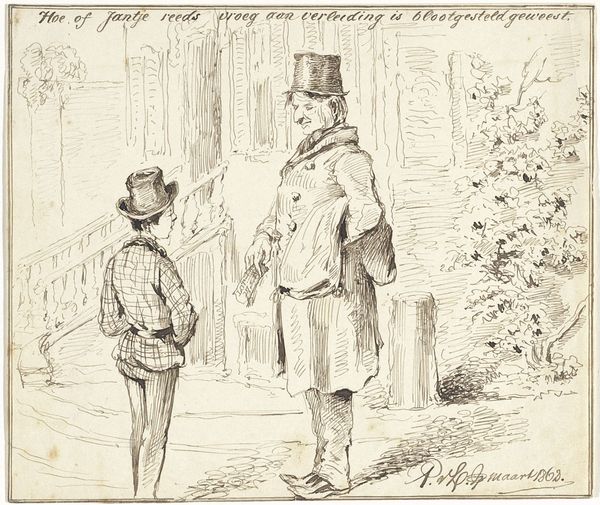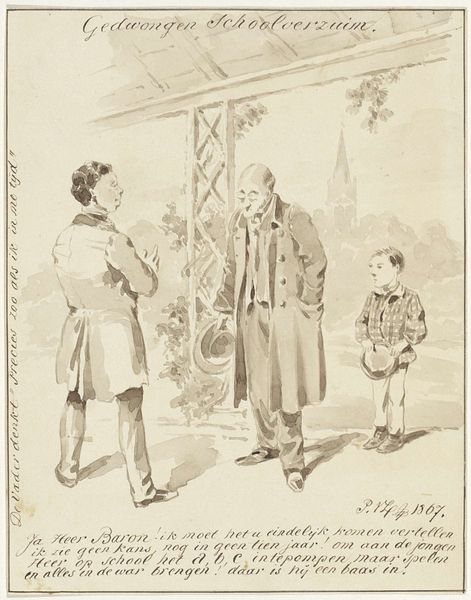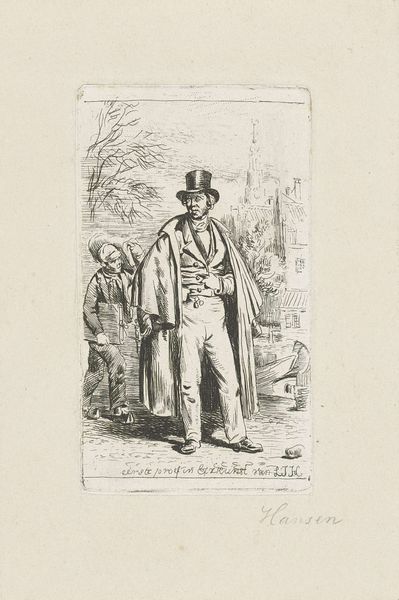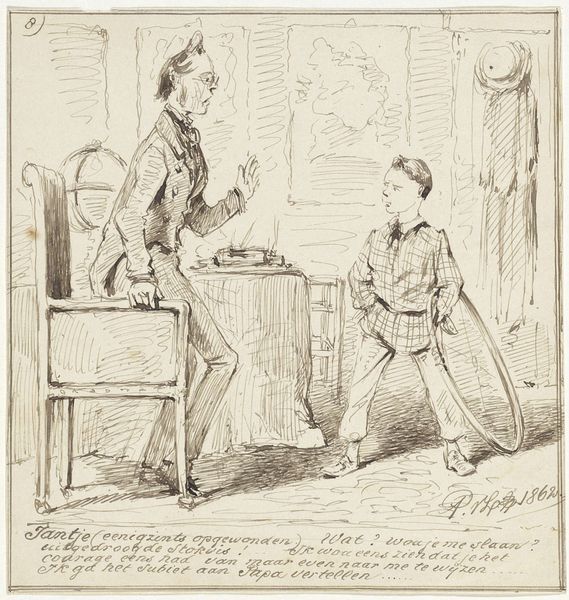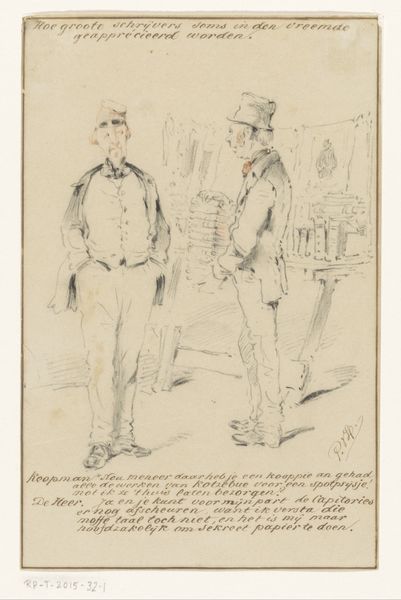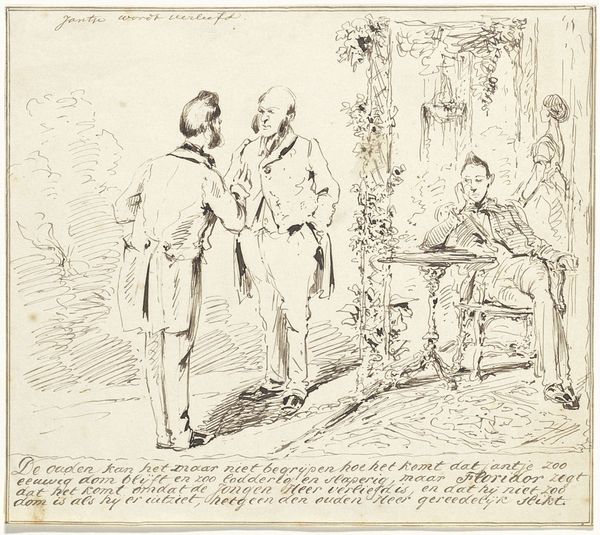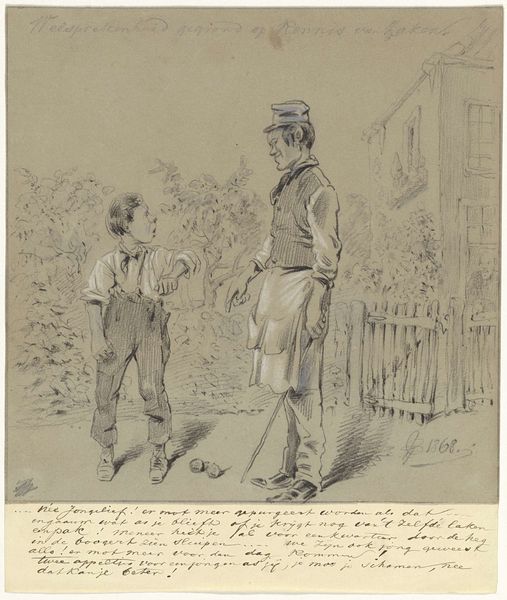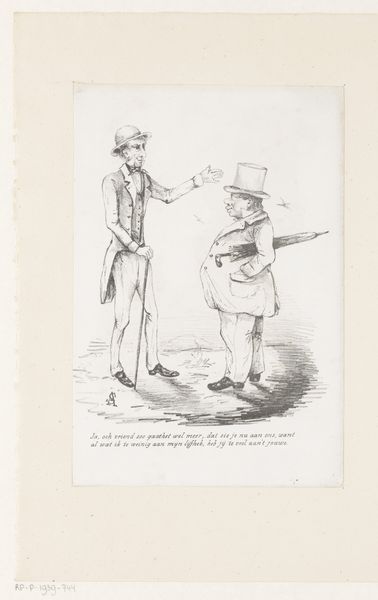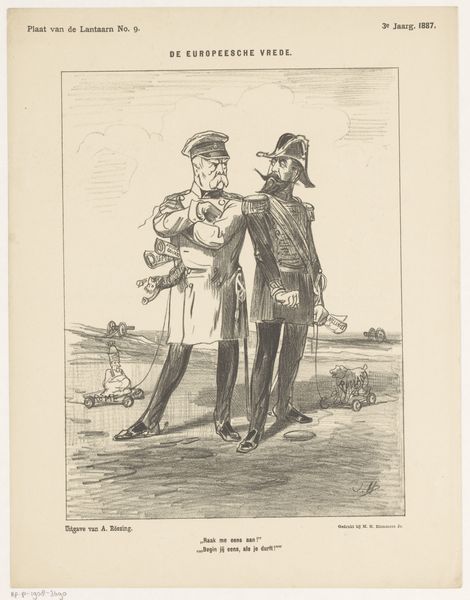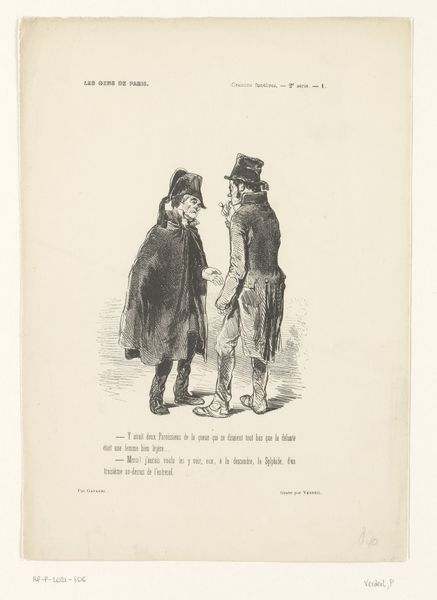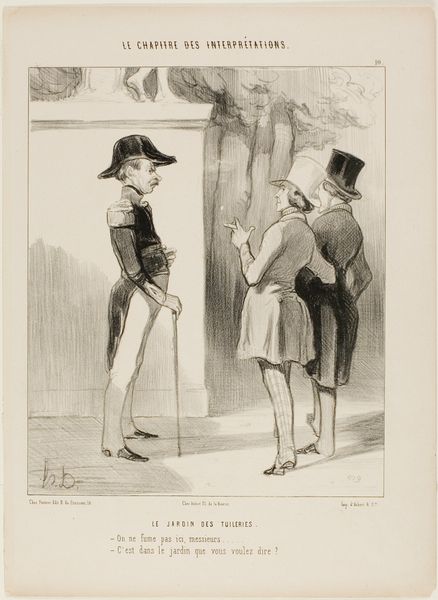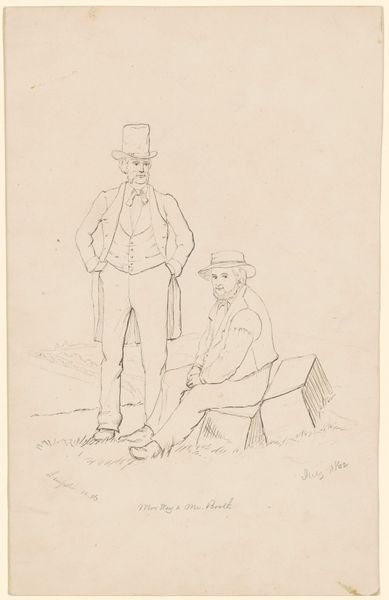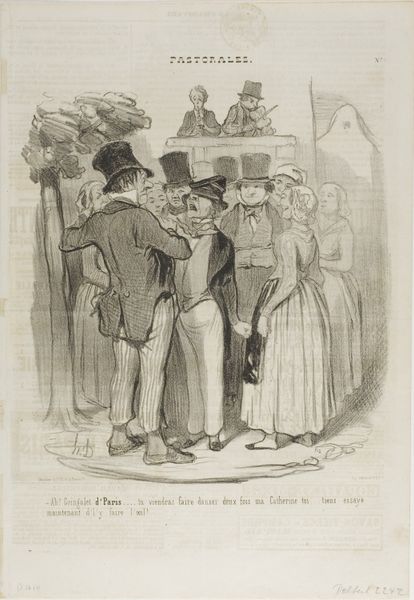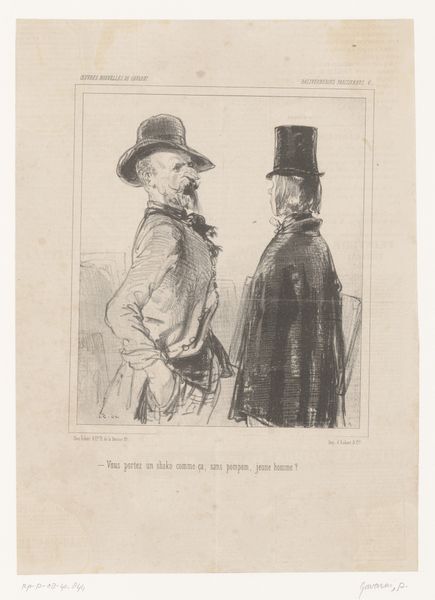
drawing, ink, pen
#
portrait
#
landscape illustration sketch
#
drawing
#
narrative-art
#
mechanical pen drawing
#
pen sketch
#
personal sketchbook
#
ink
#
sketchwork
#
ink drawing experimentation
#
pen-ink sketch
#
sketchbook drawing
#
pen
#
genre-painting
#
storyboard and sketchbook work
#
sketchbook art
#
realism
Dimensions: height 191 mm, width 171 mm
Copyright: Rijks Museum: Open Domain
Curator: This pen and ink drawing, titled "Verhaal van de jongen Jantje, nr. 1", was created in 1862 by Pieter van Loon. Editor: There's something deeply melancholic about it. The spare use of line, the stiff posture of the figures… It suggests a story tinged with sadness or social tension. Curator: Indeed, the artist's choice of such stark lines emphasizes the social structure of the characters displayed in the scene. You have figures from differing socioeconomic groups presented from left to right in the image. This structure lends itself to the artwork to reflect and preserve cultural memory by visually reminding the viewer of traditional European social dynamics. Editor: I agree. Note the child’s positioning – almost literally in the shadow of the man in the top hat. And is it my imagination, or does the man in the top hat seems almost to be judging or patronizing the boy. This imagery feels laden with commentary on class and childhood labor. Curator: That's insightful, there may be tension there. The narrative itself plays a role, doesn’t it? These characters may be enacting established social patterns or possibly be critiquing established social patterns. It allows for conversation with social power and agency within its cultural and historical setting. Editor: Exactly. And those stark ink lines reinforce that. There's a sense of constraint, of figures confined within prescribed roles. You feel the rigid constraints that impacted daily lived realities during this time. Curator: Ultimately, van Loon captures an essential image: how visual narratives embed cultural memory through the psychology of relationships and place, and through the very composition of their representation. Editor: And that somber sketch becomes a quiet yet powerful statement. It captures the essence of those silent societal dynamics in 1862, even across the boundaries of class and status. It serves as a stark reminder of the power structures deeply embedded within these ordinary encounters.
Comments
No comments
Be the first to comment and join the conversation on the ultimate creative platform.
